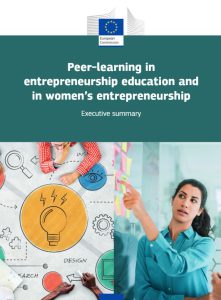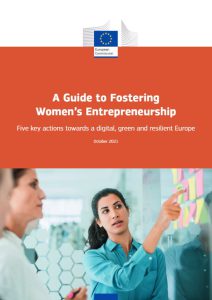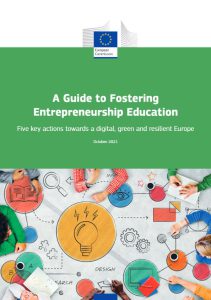The Publications Office of the European Union has recently made available for free download three new publications on entrepreneurship education and women’s entrepreneurship.
Below you can find per each publication a short introduction and a direct link to download the PDF copy.

Peer-learning in entrepreneurship education and in women’s entrepreneurship – Executive summary
Authors: Volkmann, Christine; Tømmerbakke, Jarle; Rancakova, Dagmar; Grünhagen, Marc; Melleri, Minna; Hostak, Juraj; Lilischkis, Stefan; Recheva, Tomislava

A guide for fostering women’s entrepreneurship
Authors: Rancakova, Dagmar; Hostak, Juraj; Lilischkis, Stefan

A guide for fostering entrepreneurship education
Five key actions towards a digital, green and resilient Europe
Authors: Volkmann, Christine; Tømmerbakke, Jarle; Melleri, Minna; Grünhagen, Marc; Lilischkis, Stefan
The reports from the European project “Peer-learning Activities in Entrepreneurship Education and in Women’s Entrepreneurship” are also published and available at the following links:
- A Guide to Fostering Entrepreneurship Education. Five key actions towards a digital, green and resilient Europe. Catalogue number: EA-09-21-266-EN-N.
A guide for fostering entrepreneurship education – Publications Office of the EU (europa.eu) - A Guide to Fostering Women’s Entrepreneurship. Five key actions towards a digital, green and resilient Europe. Catalogue number: EA-09-21-267-EN-N.
A guide for fostering women’s entrepreneurship – Publications Office of the EU (europa.eu) - Peer-learning in entrepreneurship education and in women’s entrepreneurship. Executive summary. Catalogue number: EA-09-21-268-EN-N.
Peer-learning in entrepreneurship education and in women’s entrepreneurship – Publications Office of the EU (europa.eu)
